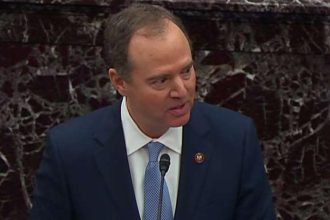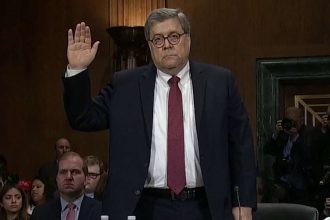In a world filled with shifting loyalties and constantly evolving agendas, moral clarity stands out as a rare but crucial trait in political leadership. Citizens look to leaders not only for policies and progress but also for integrity, honesty, and ethical courage. A leader’s moral compass often determines how they respond to pressure, resist corruption, and make decisions that affect millions. Politics doesn’t exist in a vacuum—it reflects society’s values, and it shapes them in turn. That’s why morality isn’t just a personal virtue; it’s a public necessity when it comes to leadership that lasts and inspires.
- 1. Defining Moral Leadership in Politics
- 2. Personal Values and Public Responsibility
- 3. The Impact of Moral Conviction on Decision-Making
- 4. Accountability as a Moral Imperative
- 5. The Role of Empathy in Political Leadership
- 6. Courage to Stand Alone When Necessary
- 7. Building Trust Through Consistency
- 8. Moral Leadership in Times of Crisis
1. Defining Moral Leadership in Politics
Moral leadership in politics means much more than speaking about ethics—it’s about consistently living out those principles in action. True moral leaders ground every decision in fairness, justice, and accountability, not convenience or popularity. They lead with conviction, even when it costs them politically. This kind of leadership resonates because it shows authenticity. Voters may disagree with a leader’s choices, but they respect clarity and moral courage. When political figures hold themselves to high standards, they elevate the system itself. It becomes harder for corruption to take root when the tone at the top demands integrity without compromise.
2. Personal Values and Public Responsibility
A politician’s personal values should not be separate from their public role. The two must align if leadership is to be trusted. Voters can detect inconsistency. When someone claims to stand for justice but supports injustice for political convenience, the disconnect erodes public faith. Many leaders refine their ethical compass through education, life experience, or spiritual training. Those pursuing a masters in ministry, for example, often deepen their understanding of servant leadership and moral responsibility. This foundation becomes critical when they enter public life. It equips them to serve not with self-interest, but with a focus on the greater good.
3. The Impact of Moral Conviction on Decision-Making
Leaders face relentless pressure to compromise. Lobbyists, party lines, and media scrutiny constantly push them to choose the easy route over the right one. That’s where moral conviction steps in as a powerful anchor. When decisions stem from a well-formed ethical core, leaders don’t sway with every wind. Instead, they consider what is right, even if it’s unpopular. Take policies on poverty or criminal justice reform—real change requires moral courage to stand against the status quo. Voters respect leaders who explain the ‘why’ behind their decisions, especially when those choices come from a place of conviction, not calculation.
4. Accountability as a Moral Imperative
Leadership without accountability easily turns toxic. Moral politicians recognize that holding themselves accountable is not optional—it’s essential. They welcome scrutiny because they understand transparency builds trust. Leaders who dodge questions, hide information, or shift blame weaken their credibility. True accountability means acknowledging mistakes, correcting them, and staying open to critique. This isn’t weakness; it’s strength. When leaders set a tone of openness, their teams follow suit. A culture of accountability leads to better governance because it keeps everyone focused on doing what’s right, not just what’s easy or expedient. In the long run, moral leadership sustains institutions and public trust.
5. The Role of Empathy in Political Leadership
Empathy doesn’t always get top billing in politics, but it plays a massive role in effective leadership. When leaders listen with empathy, they create policies that reflect real human needs. They don’t just crunch numbers; they connect with people. Empathy allows leaders to see beyond their bubble and consider how decisions affect the vulnerable, the voiceless, and the overlooked. This emotional intelligence gives them the moral insight to craft fairer laws and more compassionate governance. Voters can tell when a leader actually cares. Empathetic leadership doesn’t just build popularity—it lays the groundwork for lasting, positive change in society.
6. Courage to Stand Alone When Necessary
Moral leadership often means taking a stand when everyone else stays silent. The true test of a leader’s convictions comes when they face opposition—not just from rivals, but from allies and constituents too. Great leaders understand that doing what’s right isn’t always what’s popular. Whether it’s standing against discrimination, exposing corruption, or protecting democratic norms, they must sometimes walk alone. This courage doesn’t come from ego; it comes from deep-rooted principles. Politicians who act from moral conviction—even when it costs them votes—earn lasting respect. History remembers the ones who chose integrity over convenience, even when it meant standing alone.
7. Building Trust Through Consistency
Trust forms the bedrock of any effective political relationship. People may tolerate mistakes, but they won’t forgive hypocrisy. Leaders must demonstrate consistency between their words and actions if they want to be trusted. When voters see that a politician stands by their principles in both triumph and trouble, their belief in that leader grows. It’s not about perfection—it’s about predictability in moral reasoning. Leaders who flip-flop based on polling or pressure lose credibility. But when they stay true to their ethical framework, they give people something to rely on. Consistency in character speaks louder than campaign promises ever could.
8. Moral Leadership in Times of Crisis
Crises reveal the true nature of leadership. During national emergencies, wars, pandemics, or social unrest, leaders must respond quickly—but also with clarity and conscience. These are the moments when shortcuts tempt and fear dominates. Yet, moral leaders rise above panic and pressure to choose justice, equity, and truth. They communicate honestly, even when the news is grim. They protect the vulnerable, even if it’s politically costly. Leadership in crisis isn’t just about strategy—it’s about ethics. When leaders prioritize lives over optics and values over vanity, they guide nations not just through hard times, but toward healing and growth.
In politics, where power often overshadows principle, morality remains a radical act. Leaders who ground their work in ethics, empathy, and unwavering conviction don’t just navigate systems—they transform them. The challenges are immense, but so are the stakes. We need leaders who see public service as a moral calling, not just a career path. Their choices ripple far beyond their term limits, shaping what citizens believe is possible and what future leaders believe is necessary. When political power serves moral purpose, true progress begins. And in a world hungry for hope, conviction-driven leadership might just be our most valuable resource.














